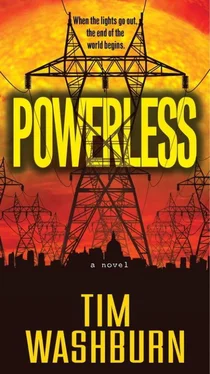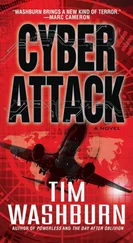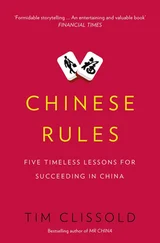The President turns his chair and stops in midswivel. “Are those metal panels really necessary?”
“The Secret Service seems to think so. Which only proves my point that—”
President Harris holds up his hand to silence Alexander. He begins riffling through the mounds of paper cluttering his desk. It seems pointless to press a legislative agenda when more than half the members of Congress are stranded God knows where.
“Mr. President, Paul, this is the last time I’m going to bring the issue up, but we need to at least move operations to Camp David.” Alexander cringes, waiting for the expected outburst. But he’s surprised when his friend pauses a moment to consider his statement. He pushes just a bit more. “The First Lady would certainly be more comfortable there.”
President Harris pushes the papers aside and stands. He’s gaunt from worry and his hollow cheeks are sporting a rash of black and gray stubble. He begins to pace the area where the windows once opened on the world, his hands fisted at his side.
“Okay, Scott. Let’s move to Camp David. But we’ll do it by motorcade instead of the big spectacle with the three helicopters.”
“We can’t go by car.”
“Why the hell not?”
“Because every road leaving Washington is jammed with stalled cars. We’d get maybe three blocks, and that’s only because the Service had all those vehicles towed away.”
“Why aren’t we clearing, at minimum, one road?”
“Because it would take a hundred wreckers a month working twenty-four/seven to even make a dent in the problem. In addition, we don’t have the fuel to run the wreckers. Besides, it’s pointless anyway,” Alexander says.
President Harris stops pacing. “What happened to all those National Guard tankers I ordered to be filled?”
“Maybe only a third of them were filled before the power went out.”
“Where are those?”
“A majority of them are keeping hospital generators running. Unfortunately, most of them are probably down to the dregs.”
“What’s going to happen when that happens?”
“I don’t think you want to know, Mr. President.”
President Harris turns away and begins pacing the perimeter of the oval room. He stops and says, “One helicopter, and one only.”
“One presidential helicopter,” Alexander clarifies. “We’re going to need several other choppers, or one making several trips to get most of the staff out to Camp David.”
President Harris bristles with anger. “The whole damn country is going to know their President is bailing.”
“Can’t be helped, sir. And we’re not bailing—just changing locations. As I pointed out earlier we have no working press. Our main focus is your safety.”
“When?”
“Tomorrow night, after dark.”
“So you were counting on me to cave?”
“No, sir, but I wanted to be prepared if I was successful in convincing you.”
“Scott, you’re a damn terrible liar.”
“We’ve been friends for a long time.” A wry grin forms as Alexander walks from the office.
University Hospital, Baltimore, Maryland
Approximately forty miles from the White House, the medical staff at University Hospital is struggling to reduce the number of patients in the hospital. Not helping the situation is the constant stream of newly injured, who straggle into the hospital on an hourly basis. Dr. Iftikar Singh, a short, precisely groomed man who grew up in New Delhi, is waiting for the last of the medical staff to filter in for his hastily called meeting. Chosen by the staff to be medical director, he is now facing a multitude of life-and-death decisions.
After everyone is seated, he stands and approaches the lectern while looking out over the audience. The seats rise from front to back, with those on the rearmost row some thirty feet above the small floor space at the front of the room. Dr. Singh takes a deep breath before addressing his fellow doctors. “I have just been informed by military personnel that the hospital only has enough fuel to run the generators for approximately another twenty-four hours.”
The room boils with angered shouting and cries of anguish. Dr. Singh gives them a moment to vent before continuing.
“It is not something we can control—”
He pauses as the shouting begins again. A slight accent from his native country of India is noticeable, but having been educated in American universities, his English is very good. It’s the cultural differences that cause the most problems for him. In America, medicine is so advanced that many patients receive life-continuing care for injuries and illnesses that would mean a certain death sentence in his home country.
“Please be quiet,” he says into the microphone. The noise level drops enough to continue. “As I was saying, it is out of our control. You need to begin weaning the patients off any medication they are receiving. We are closing the doors to any new patients.” The room is silent enough for him to hear the worried breathing of those nearest him.
“What about the patients on vents and other mechanical devices?” someone says from the middle of the room.
He leans toward the microphone and says in a whisper, “They will die.”
He glances up at those he had been working with for years. “All we can do is provide comfort to those families, and do the best by our patients. We are not alone. Most every hospital across the country is dealing with the same critical decisions we are now facing.”
Another doctor says, “Can we still suture wounds, give pain medicine at least until the pharmacy is depleted?”
“The pharmacy is nearly depleted. We have not received a shipment of medication since the power went off over a week ago. We could make an office with daylight exposure available for those who would like to continue to treat the injured until all supplies are exhausted. But as a hospital we must close the doors.”
Dr. Singh pauses again and sweeps his gaze around the room. “How many of you are still caring for patients?”
Almost every doctor’s hand shoots up. He looks over the papers resting in front of him—the latest numbers that were supplied to him only moments before the meeting.
“According to hospital records, we have over two hundred patients in various sections of the hospital. We need to prepare these patients for immediate discharge. This is a very harsh reality, but there are no other options. For those relying on mechanical devices to survive, we need to disconnect life support as soon as humanely possible so their loved ones are given a chance to say good-bye.”
With nothing left to say and with no reassuring words to offer, Dr. Singh steps away from the microphone and joins his fellow medical staff as they come to grips with the looming tragedies.
The Marshall home
“Iwish I knew what the weather was going to do,” Zeke says. He and his parents are sitting around the kitchen table, his mother again in her robe, and his father dressed in a pair of sweats and an old T-shirt. It’s early, the sun still well below the horizon, as he packs the few remaining items he’ll need for his trip. Shadows flicker on the wall as the light from three candles bathes a portion of the room in a warm, weak, yellow light. The surroundings resemble an old western movie, as they huddle around the table now laden with guns, saddlebags, and a bedroll.
“I have an Old Farmer’s Almanac ,” his father says.
Zeke’s not sure if it’s said in jest or whether his father believed he was offering a useful suggestion. “I don’t think that’s going to give me the seven-day forecast, Dad. I’m trying to decide how many warm clothes to take.”
Читать дальше












